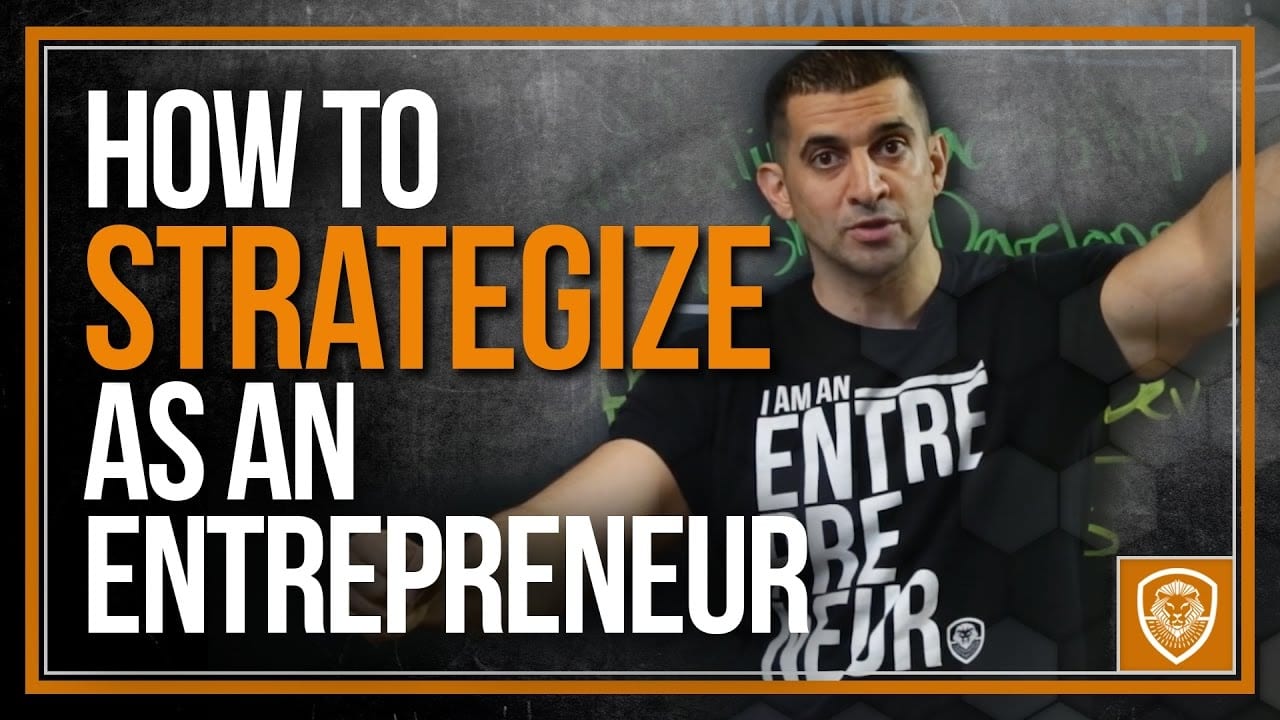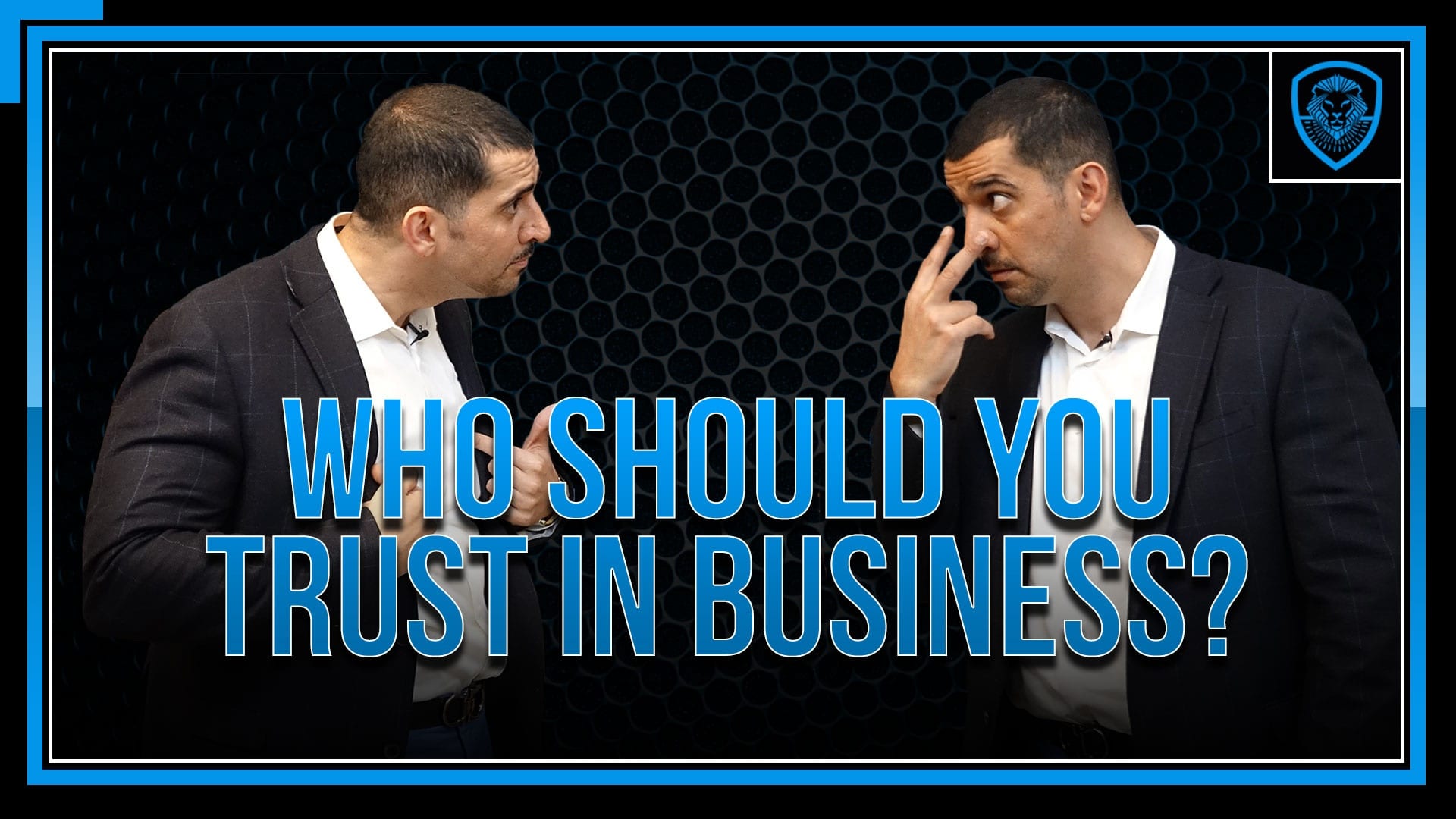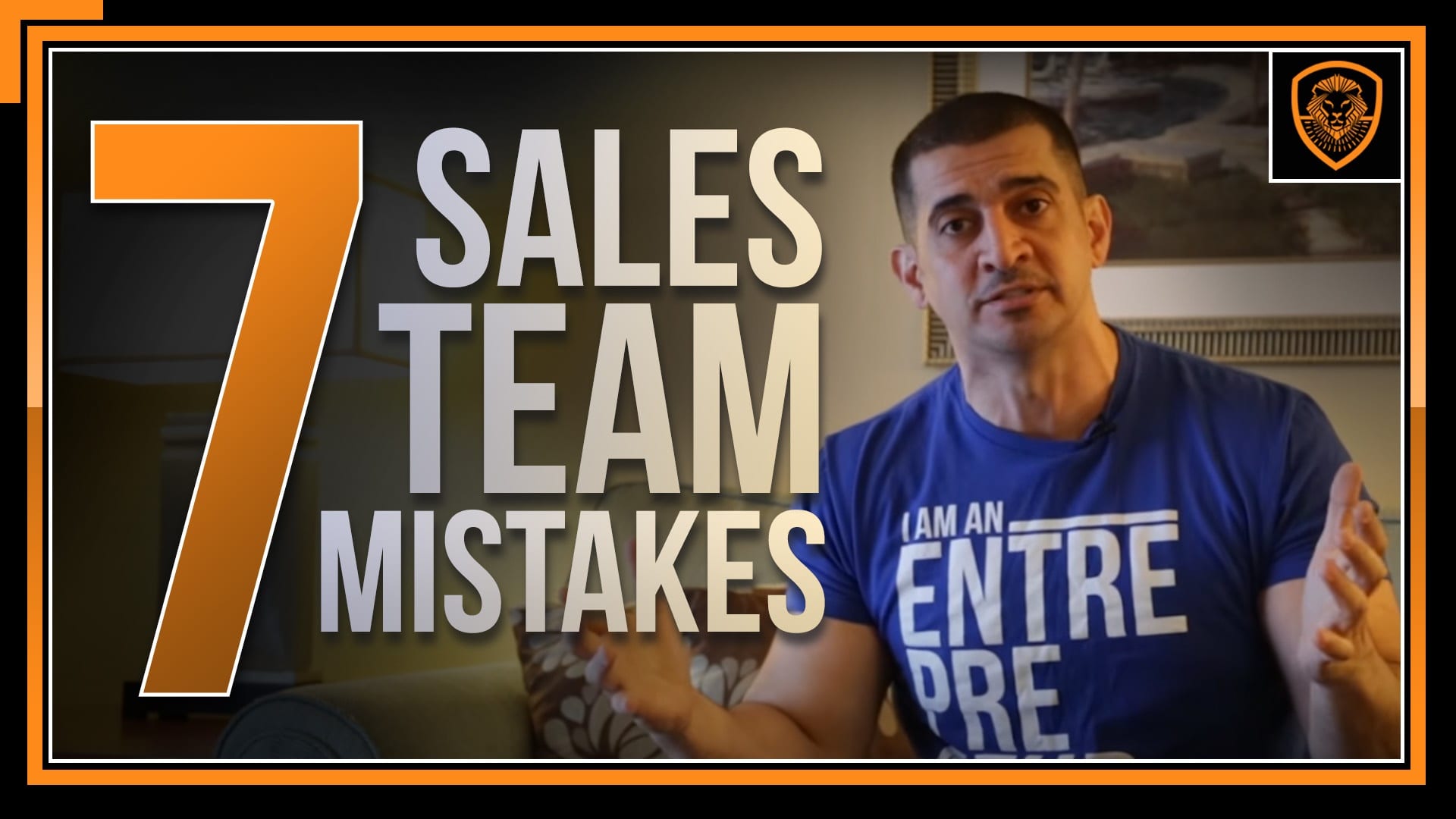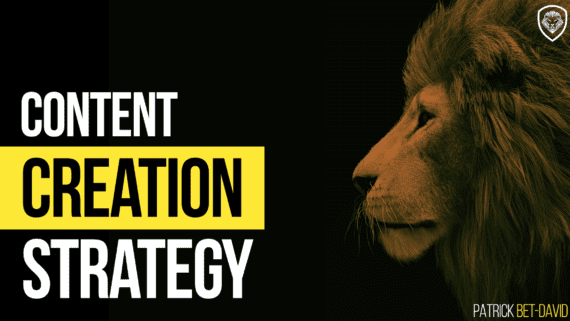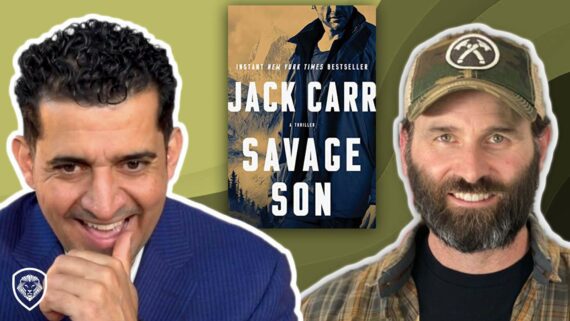When you go to the gym, do you ever see the same person there every time, working out really hard? With some, you notice you never see any progress with their body. How is that even possible? The same thing goes with business. You can have two people that became entrepreneurs at the exact same time. We’ll call them Bobby and Joey. Bobby and Joey are both all-the-timers, working 80 hours a week. But five years into it, Bobby’s business does $5 million a year, and Joey’s business only does a couple hundred thousand dollars a year. Why is that? It’s all about strategy. So in today’s video and article, I’m going to get into how to strategize as an entrepreneur.
In this video I’m going to explain to you the strategy quadrant. This video isn’t for everybody. It’s not for someone that’s a part-timer. This video is for someone who, at a minimum, is working 60 hours per week. It’s for those that want to take their business from doing a million dollars a year to four, 10 or even 20 million dollars a year. This is not for those of you looking to do something small. This is for you if you want to exponentially grow your business.
There are four things that you do as a CEO and entrepreneur. You’re either:
- Working on your next innovative campaign
- Developing leaders
- Making your operating system better
- Doing biz dev and sales

Note: As you read this article, refer to this image for greater clarity on the information presented.
Linear vs. Exponential
As you can see in the image above, the two things at the bottom of the quadrant, making your operating system better and biz dev and sales, are linear. The linear things are important, but they don't make your business explode.
For example, if somebody has a liquor store or a restaurant, and make burgers or sell beer, they may gross $300,000, $600,000, or $1,000,000 a year. And they're happy with that. It's been the same for 10 years, because their main focus is biz dev, so it's linear, and it hasn't exploded.
At the top of the quadrant, you have next innovative campaign and leadership development. This is what leads to exponential growth.
Now before I get into the main points, I want you to understand that what you do also has to do with when you do it. For instance, every business goes through four different phases:
- Survival. This is the startup phase.
- Formulation. This is the phase where you put the pieces together. This is important because in this phase you're preparing for the next phase.
- Explosion
- Plateau. After the explosion stage, most every company, if not every company hits the plateau phase.
Now let's get into the four quadrants and how to strategize as an entrepreneur.
The exponential side is next innovative campaign and leadership development.
Next Innovative Campaign
This is very simple. Let me explain to you what I mean by next innovative campaign. Right now it's holiday season. Christmas is around the corner and New Year's is coming. By January 1st everyone will be judged on the type of campaign they run during this season. Dealerships have to hit their numbers by the end of the year, so you'll hear a lot of creative campaigns. Things like, "If you buy a brand new Hyundai in the next 60 days, we'll pay for your gas for the next two years." People will want to buy the car, thinking, "Oh wow. Honey, we can buy a car and they're going to pay for two years of our gas."
But what they're really saying is that instead of selling you the car for $24,000, they'll sell it to you for $28,000, to cover the $4,000 cost of two years of gas. But it's an innovative campaign to get you to come in.
Whatever business you're in, every business has a next innovative campaign. And those that don't constantly have next innovative campaigns don't have the inevitable explosion.
Leadership Development
Next is leadership development. In leadership development, you always identify the next leaders you're going to build.
For the first two years, my business was linear. Then I said, "Look, I want to experience an explosion. I want to take my business from doing $100,000 a year to doing tens of millions of dollars per year. How do I do that?" Everything came back down to leadership development.
So you take whatever business you have, and you ask yourself, "Who do I have at the home office that I can make into a major leader in the company?" Make a list of your top three, five, or however many you have. Then start assessing them. You look at their strengths, weaknesses, and what they do and don't respond to. Then look at their level of competitiveness, their ability to come up with ideas, and how solid they are. You also ask if they believe in the company and what you can do with them.
Next, sit down and identify what things he or she needs to do in the next six months, 12 months, and two years. Present it to him. Then work on them. Challenge him or her to grow.
As the CEO, as an entrepreneur, you will be judged based on the type of leaders you develop, because it's exponential. A part of this could be looking at the next people you recruit, and the type of talent they bring to your company.
The linear side is operating systems and biz dev and sales.
Operating Systems
Listen in here for my thoughts on operating systems.
Biz Dev/Sales
Next is biz dev and sales. This has to do with relationships with new vendors and new partnerships, and how to make your sales process better. It's all about networking, attending events from your industry. Meeting after meeting after meeting. Relationship, relationship, relationship.
That's what biz dev is. Biz dev is linear. If you spend most of your time in the linear part, you are not going to explode. But if you spend most of your time on the exponential part, you're getting ready for a major explosion.
Here's the problem. Most people stay at the linear level. Here's why. Just because you chose to become an entrepreneur doesn't make you a visionary or a CEO. When you chose to become an entrepreneur, it doesn't mean you would always think about the future. You could be a technician, as is talked about in the book, E-Myth. Perhaps you chose to become an entrepreneur and all you want to do is make your software better.
One guy I worked with spent so much time on his software, until he ran out of money. He had no sales people, and he went out of business. He spent $600,000. It was a complete waste of time. I told him that he needed sales, and to develop his people. He responded, "But you don't understand. If I get this product done, we're going to blow up." It had nothing to do with his product. His product was great. But without sales, nothing happens.
The Different Phases of Business
As you're reading this, you need to ask yourself what phase you're in. Survival phase? Formulation phase? Explosion phase? (For now we'll set aside the plateau phase.)
Where Do You Need to Improve?
No matter what videos you watch or books or articles you read, at the end of the day, when you become successful and build a business that's exponentially growing, you'll be judged on the decisions you made that nobody saw or knew about. You need to look at the strategy quadrant and ask yourself where you are and are not doing a good job. Where do you need to pivot? Do you need to create an innovative campaign? Maybe you need to look at the next 90 days and prepare for your next innovative campaign. Ask yourself what you're doing this month, next month, and the month after that.
You'll be amazed by how exciting it is if you really put a strategy together for your business. It's definitely exciting when the business grows and money starts coming in. Once that starts, let me tell you, it gets very, very interesting.
With that being said, if you have any comments or thoughts, comment on the bottom. And if you haven't yet subscribed to my YouTube channel, click on the button below to subscribe.

